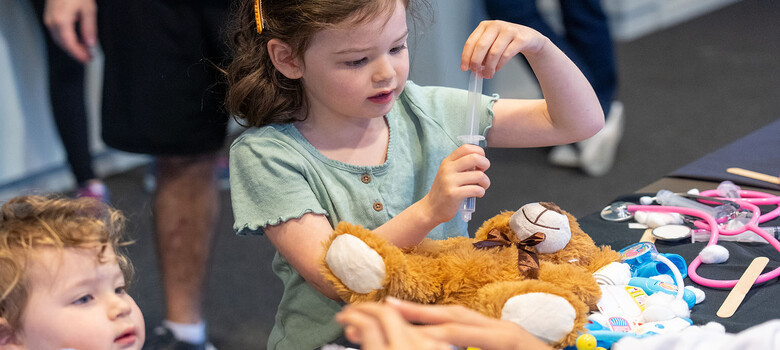Help Your Teen Take Charge of her Health

Richard Chung, MD, is an adolescent medicine specialist who knows that parents make a big difference in how teens learn to manage their health. Here, he offers parents a roadmap for setting their teens on that journey.
The teen years are filled with emotional, physical and cognitive changes as they move from adolescence to adulthood. Parents also experience changes, including the shifting role they play during their teen’s doctor visits, where many of these changes are discussed. As a specialist in adolescent medicine, I often see parents struggle with this change. Here are a few pointers to help you navigate your teen’s next visit.
Preparation Pays Off
When your child is an infant, preparing for her next appointment is entirely up to you. When your child is a teenager, however, preparation looks different. Your teen knows what’s bothering her more than you do. She’ll get much more out of her next visit if she reflects on her health needs beforehand. As her parent, you can help her prepare by explaining that these visits are an opportunity to get an expert consultation on her health and development. Encourage her to write her questions down and draft her own agenda to make the most of it.

During adolescence we want teens to ask and answer most of the questions, and experience what it’s like to be heard.
Your Teen’s Privacy is Your Best Friend
Research shows us that respecting your teen’s privacy, and offering confidential care leads to better outcomes. That’s why we spend part of each visit talking alone with adolescents, and promise them privacy unless their safety is at risk. This gives them space to open up in ways they wouldn’t otherwise. Creating this space is one of the most important things you can do for your teen. Without these opportunities, many teens struggle with health decisions, are burdened with unanswered questions, and run into entirely avoidable difficulties.
You Want Your Teen to Raise her Voice
During adolescence we want teens to ask and answer most of the questions, and experience what it’s like to be heard. Many teens struggle with their health but are tied up in knots of shame and uncertainty that causes them to clam up. They need encouragement to ask questions and express their concerns honestly. Teens should also start making actual health decisions. Sure, you’re still ultimately in charge, but we want her input on screening tests, immunizations and treatment options. Eventually she will be coming to visits alone. Making important health decisions takes practice.
Where is Your Teen Headed?
Parents of infants and toddlers constantly ask about developmental milestones. When should he start walking? When can he start eating quinoa? Did he really say my name or was that just a burp? These questions are crucial because early childhood is a rich developmental time. Adolescence is as well, but parents of teens rarely ask about development. Too often the focus is solely on avoiding risks instead of maximizing your teen’s potential. If the conversation is just about fixing issues or mitigating risks, your teen will leave fairly uninspired or perhaps even discouraged. However, if the time is spent looking toward your teen’s future goals in the WNBA or in law school, then both of you will likely leave on a more positive note.
Debrief But Don’t Pry
Ask your teen what her takeaways from the visit were, how she feels about the decisions that were made, and the plans that were hatched. Also, tell her how glad you are that she had an opportunity to speak privately with her doctor and ask her own questions. Please try not to pry. The more you can affirm the importance of her privacy the more likely she’ll be to open up again next time and have her concerns addressed. At the end of the day, that’s the point. Parents can be incredibly effective in making sure that happens, even from outside the room.



